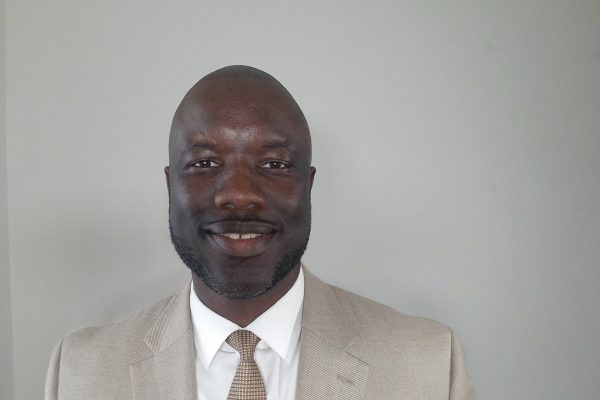AUSTIN, Texas — Before COVID-19, Ebola ripped through West Africa, then touched down in the United States in 2014. Now, one newly named Carnegie fellow hopes his ongoing research on U.S. and West African survivors of the Ebola epidemic will offer both insight and warning into what a future after COVID-19 might hold.
Each year, the Carnegie Corporation of New York awards fellows $200,000 for scholarly research and writing aimed at addressing some of the world’s most urgent challenges to democracy and international order. Kevin Thomas, professor of African and African diaspora studies at The University of Texas at Austin, was awarded for his research proposal to investigate the longer-term consequences of the 2014 Ebola epidemic in West Africa.
“Because the Ebola epidemic occurred much earlier than the current pandemic, we have an opportunity to study people who are already dealing with long-term health consequences of a novel, infectious disease,” said Thomas. “Another thing we could also learn is how social structures, inequalities and access to health care actually shape the processes of recovery after an epidemic.”
For his research, which will culminate in a book, Thomas will study the survivors from the Ebola epidemic in Liberia and Sierra Leone, building on work from his previous book, which examined the local implications of the Ebola epidemic in Dallas, particularly on African immigrants.
His research reinforces the idea that epidemics can be truly global events and provides insight into what factors influence a society’s recovery from emerging infectious diseases.
“My desire is that we use this research to make better decisions and create better interventions that would help uplift the circumstances of the people who have actually survived the epidemic, as well as help us understand the potential long-term health and social consequences of COVID-19,” Thomas said.
This year’s Carnegie fellows were selected by a distinguished panel of jurors, including heads of the country’s premier scholarly institutions and presidents of leading universities and foundations, from hundreds of nominations made by leaders from universities, think tanks, publishers and nonprofit organizations nationwide.
Previous Carnegie fellows from the UT Austin College of Liberal Arts are historian Denise Spellberg (2009), history alumnus Greg Cushman (2015), sociologist Harel Shapira (2016) and historian Monica Muñoz Martinez (2017).




